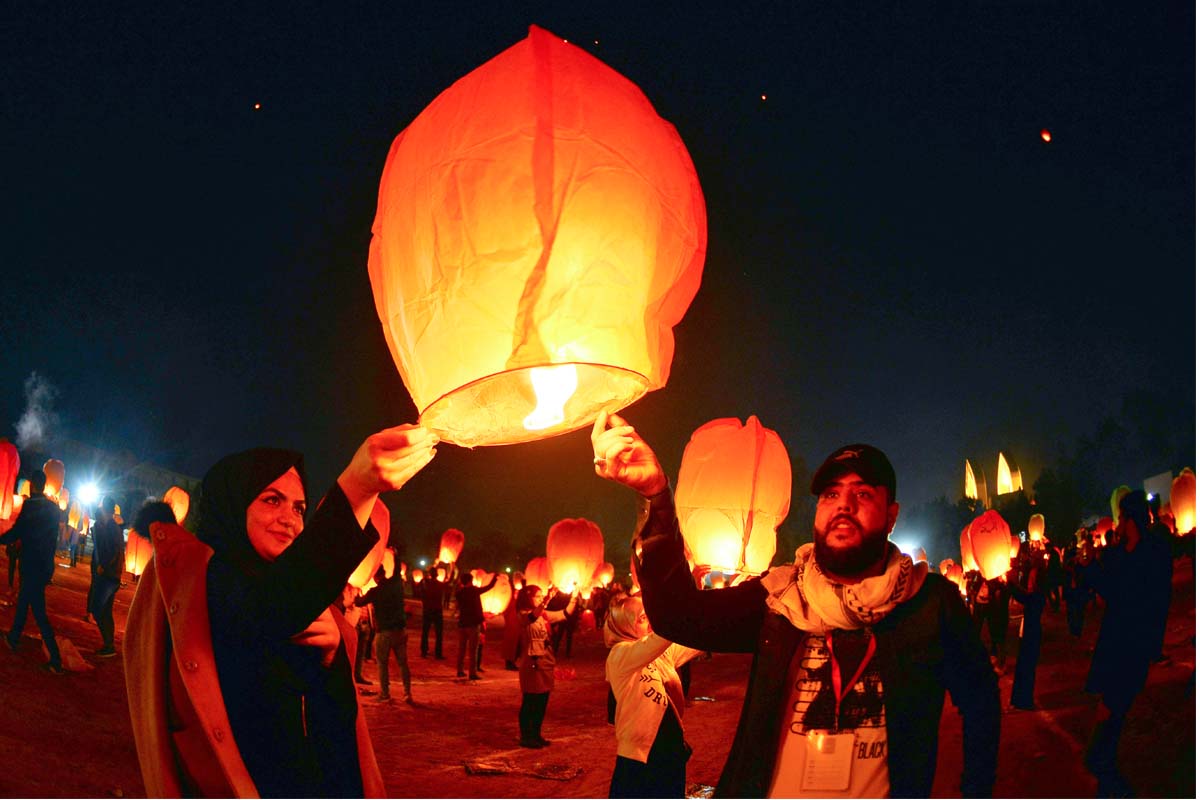Elon Musk calls for peace in cryptic post amid Iran-Israel war
His comments come amid recent attacks on Israel by Iran, reportedly in retaliation to the attack on their embassy.
As in the rest of the Arab world in 2011, Iraqis are protesting against the country’s faltering political system, largely established by the US and its allies after the 2003 invasion which toppled Saddam Hussein.

Iraqis in the holy shrine city of Najaf launch rice paper hot air balloons on Dcember 28, 2019, to show their solidarity with the ongoing anti-government protests across the country. (Haidar HAMDANI / AFP)
The political crisis in embattled Iraq has deepened with the country’s President, Barham Salih, threatening to resign. After three months of anti-government protests, the latest turmoil is partially constitutional and almost in equal measure a reflection of the rift with Iran. The President has let it be known that he would prefer resignation rather than approve a candidate for Prime Minister, put forward by Iran-linked political parties. Mr Salih, an Iraqi Kurdish Head of State, will have to nominate a new Prime Minister after Adel Abdul Mahdi resigned in November in the face of pressure from the protesters.
More basically, it is a clash of personalities and the support that they wield. The President is determined not to allow Iran a finger in Baghdad’s prime ministerial pie. The protesters have demanded that the next Prime Minister be someone unconnected to political parties they accuse of corruption. Yet the Iran-linked Binaa parliamentary voting bloc has nominated Asaad al-Edani, a former minister and governor of the oil-rich Basra province. Binaa’s bloc is mostly composed by the Fatah party, led by the militia leader-turned-politician, Hadi al-Ameri, who is close to Tehran.
The rival Sairoon bloc, headed by populist Shia cleric Moqtada al-Sadr, said it would not participate in the process of nominating a new premier. The struggle for the mastery of the prime ministerial office is unlikely to be resolved anytime soon; fears that the political stalemate in Baghdad could persist indefinitely are not wholly unfounded. The President’s resignation over the issue is bound to exacerbate the situation. As it transpired on Friday, the President has sent a letter to the Speaker of Parliament, expressing what he calls his “willingness to resign” rather than nominate Edani.
Advertisement
While Mr Salih has not formally quit, it is likely that his resignation will be accepted by political leaders. The President’s exit would be a blow to the US, whose influence in Iraq is said to be diminishing. Quite a change in geopolitics since March 2003 when Iraq was the victim of the Anglo-US invasion. Rather surpring must be the decline in US influence not the least because Mr Salih is said to have strong ties with Washington. The stakeholders are acutely aware of the constitutional contretemps.
Parliament cannot bypass the presidency in making a prime ministerial nomination. In the absence of a President, the Speaker can discharge the crucial function. Nonetheless, it will devolve on Parliament to nominate the country’s two top executive posts. Oil-rich Iraq is facing its worst upheaval ever since the Isis was militarily defeated in 2017. Official security forces and pro-government militias have killed up to 500 people during violence in the capital and cities across the south.
As in the rest of the Arab world in 2011, Iraqis are protesting against the country’s faltering political system, largely established by the US and its allies after the 2003 invasion which toppled Saddam Hussein. Seventeen years later, the young protesters are demanding sweeping changes, including a new election law which they hope will dislodge political parties they accuse of unfairly monopolising power and putting foreign interests ahead of Iraq’s own.
Advertisement